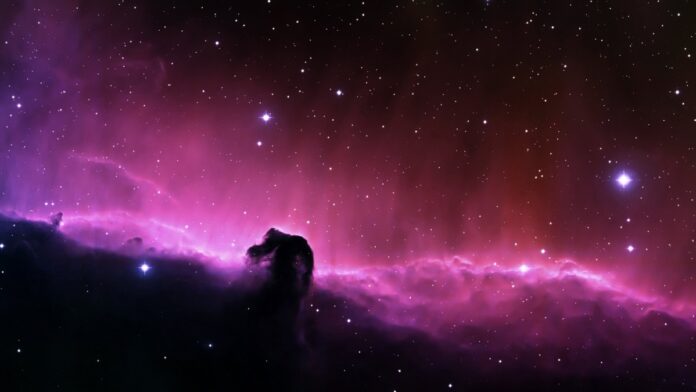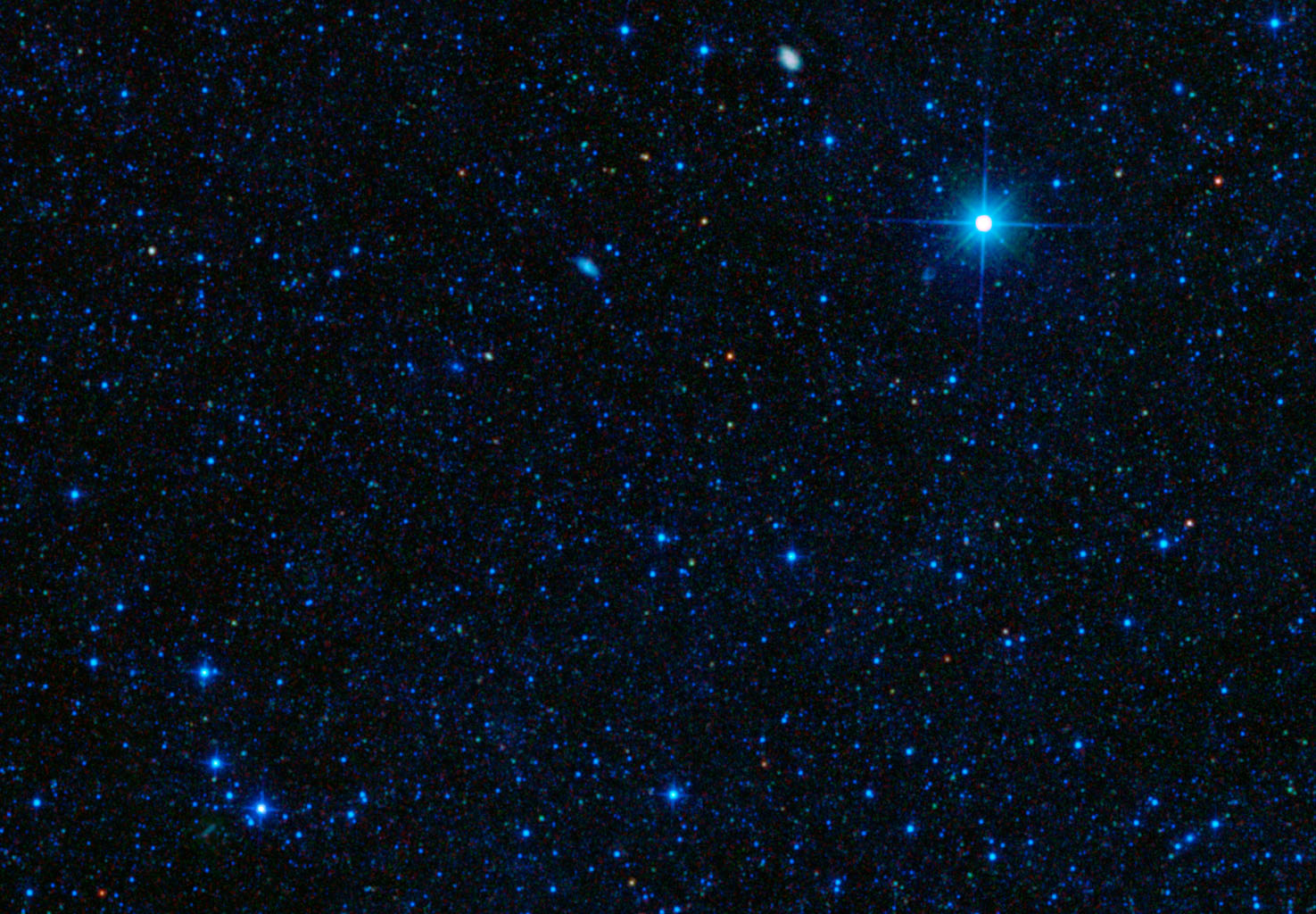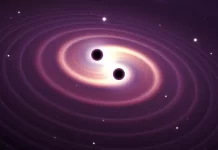
It is challenging for a man to know all the complexities of this vast universe. But still, a man constantly tries to understand all the universe’s complexities. This way, we get to know the universe better with bizarre and inspiring information. What we learn in today’s modern world, we get to know because of the significant space agency. This article has interesting facts about the universe; let us know 20 fascinating and inspiring facts about the universe that present the universe’s complexity and vastness.
Contents
- 1 We are all made up of Stardust.
- 2 You can look back in time.
- 3 It takes 225 million years for our Sun to revolve around the Milky Way.
- 4 Billions of years in the past
- 5 You can watch Big Bang on your television.
- 6 Sagittarius B consists of a massive cloud of wine.
- 7 Centaurus has a planet-shaped diamond.
- 8 The largest mountain in our solar system is on Mars
- 9 Uranus turns around with some strange results.
- 10 A year on Venus is less than its day.
- 11 Fastest moving objects in the universe
- 12 One teaspoon of neutron star weighs about one billion tons
- 13 Voyager 1 spacecraft is the farthest artificial object from Earth.
- 14 Voyager 1 photographed the farthest Earth.
- 15 Scientists are looking for evidence of extraterrestrial life on Earth.
- 16 400 billion stars
- 17 500 million planets
- 18 observable universe
- 19 There can be an infinite number of universes.
- 20 The human brain is the most complex object in the known universe.
1We are all made up of Stardust.
The first fact in 20 fascinating and inspiring facts – it may seem imaginary that we are all made up of stardust particles. Still, the reality is that almost every object found on Earth is made up of the core of the universe’s rough stars matters. Likewise, all the things that make life on Earth are first made from a star, so it would not be wrong to say that our body is made of Stardust.
Canister – Stardust
NASA has studied Stardust extensively, and you can read more about their research on their official website.
We’re All Made of Stardust. Here’s How.
13.8 billion years ago, the universe began with a big bang and the atoms it created would find their way into everything: from celestial stars to the human body.
NASA’s Canister – Stardust is pictured in the link. In the words of Carl Sagan, “The nitrogen in our DNA, the calcium in our teeth, the iron in our blood, the carbon in our apple pies, were made inside of stars. So we are made of Starstuff.”
Read more about Stardust Spacecraft.
2You can look back in time.
Do you know you look back in time when you look into the sky? The second fact in 20 fascinating and inspiring facts is – The stars we see in the night sky are far away from us, and the light we see takes thousands of years to reach our eyes after traveling in space. This means that whenever we go out at night and look at the stars, we look at their past. For example, the bright star Vega is 25 light-years away from us, so we who saw Prakash(light) got out of that star 25 years ago. Similarly, we also can see the past of other celebrities too.

3It takes 225 million years for our Sun to revolve around the Milky Way.
The third fact in 20 fascinating and inspiring facts is that while the Earth and the other planets within the solar system revolve around our Sun, and the Sun itself is orbiting around the center of our Milky Way, the Milky Way galaxy means our whole solar system revolves around the Milkey Way. So It takes 225 million years for the Sun to orbit the Milky Way. The last time the Sun was in its current position in the Milky Way, the super-continent Pangea had just begun to separate, and early dinosaurs were making an appearance.
4Billions of years in the past
Twenty fascinating and inspiring facts 4 – Hubble telescope allows us to see billions of years in the past. – Hubble telescope enables us to see very distant objects in the universe. This great telescope of engineering has been able to create some incredible images of space, one of which is the Hubble Ultra Deep Field, created using photos taken by the Hubble telescope in 2003 and 2004; the Hubble telescope is an incredible image of a small sky Displays the patch in detail; It consists of 10,000 objects, most of which are young galaxies, in one picture we can see 13 billion years of the universe in the past, precisely 400 to 800 million years after the Big Bang, which is the earliest in terms of the history of the universe.
5You can watch Big Bang on your television.
Did You Know You Can Watch The Big Bang On Your Television? 20 fascinating and inspiring fact No.5 – Cosmic background radiation is the shock and heat of the Big Bang, which originated from a momentous event that kick-started our universe 13.7 billion years ago. This cosmic echo still exists throughout the universe; surprisingly, we can use old-fashioned television sets to get a glimpse of it. When the television is not tuned to a station, you can see black and white fuzz and clacking white noise, about 1% of this interference is made up of Cosmic background radiation creations.
6Sagittarius B consists of a massive cloud of wine.
Twenty fascinating and inspiring facts 6 – Sagittarius B is a vast molecular cloud of gas and dust near the center of the Milky Way, located 26,000 light-years from Earth. Which is 463,000,000,000 kilometers in diameter, and surprisingly, it contains 10 billion liters of alcohol. Of course, vinyl alcohol is the most delicious beverage in the universe in the cloud. Still, it is an essential organic molecule, providing clues about how life-producing substances’ first building blocks were formed.
7Centaurus has a planet-shaped diamond.
Twenty fascinating and inspiring facts 7 – Astronomers have discovered the largest diamond in our galaxy, a giant lump of a crystallized diamond called BPM 37093. Like Lucy, after The Beatles’ song, Lucy in the Sky with Diamonds Is known to have been found 50 light-years away in the constellation of Centaurus. Lucy is about 25,000 miles, much larger than the Earth; it can weigh up to 10 billion trillion-trillion carats.
8The largest mountain in our solar system is on Mars
Twenty fascinating and inspiring facts 8 – Olympus Mons on Mars is the highest mountain on any planet in the Solar System. This mountain is a volcanic volcano (similar to the volcanoes found in the Highwind Islands) that is 26 kilometers long and spans 600 kilometers. This mountain is about three times the height of Mount Everest.
9Uranus turns around with some strange results.
Twenty fascinating and inspiring facts 9 – Most of the planets in the solar system rotate on the same axis as the Sun, causing a slight tilt in the planet’s axis because different parts are slightly closer to or ahead of the Sun during their orbit. Uranus is, in many ways, an extraordinary world because it rotates almost entirely with the Sun. This results in very long seasons. Each pole receives about 42 (earth years) of continuous sunlight, followed by darkness for 42 years. In the northern hemisphere of Uranus, the Sun rose in 1944 and will see the following winter in 2028, the solstice.
10A year on Venus is less than its day.
Twenty fascinating and inspiring facts 10 – Venus is the slowest revolving planet in our solar system, so it takes longer to rotate than complete its orbit fully. This means that Venus has days that last longer than her years. As a result, it is the most inaccessible environment, with frequent electronic storms, high CO2 readings, and surrounded by sulfuric acid clouds.
11Fastest moving objects in the universe
Neutron stars are the fastest moving objects known in the universe 20 fascinating and inspiring facts 11 – Neutron stars are considered the most immediate moving objects in the universe. Pulsars are a particular type of neutron star that emits a beam of radiation that can be seen in bright light like a star. Astronomers have to measure the pulse of their light to measure its rotation. The fastest known pulsar is the “PSR J1748-2446ad”, with a low spin at 24% light speed, which translates to over 70,000 kilometers per second.
12One teaspoon of neutron star weighs about one billion tons
Twenty fascinating and inspiring facts 12 – Neutron stars move incredibly quickly and are also very dense. It is estimated that collecting a tablespoon of matter from the center of a neutron star will weigh about one billion tons.
13Voyager 1 spacecraft is the farthest artificial object from Earth.
Twenty fascinating and inspiring facts 13 – In 1977, two spacecraft, Voyager 1 and Voyager 2, were launched into space. The probe discovered planets and moons of the outer solar system over several decades. It is now continuing its mission, traveling through the heliosphere at the edge of our solar system and into interstellar space. On 20 March 2013, Voyager 1 became the first artificial object to leave the Solar System and is now the farthest artificial object from Earth; more about the Voyager mission – Voyagers Journey to the infinite space in Hindi.
14Voyager 1 photographed the farthest Earth.
Twenty fascinating and inspiring facts 14 – In 1990, as part of an ongoing space mission, Voyager 1 took a picture of it while focusing its camera on Earth. It was known as The Pale Blue Dot. Which is 6 billion kilometers away, in which the Earth is visible as a small blue spot in the depth of space. Astronomer Carl Sagan, who first suggested the idea of the photograph, said, “From this distance, the Earth does not seem to be of any particular interest. But for us, it is different. Consider that point again. He is here. That’s home. That’s us.”
15Scientists are looking for evidence of extraterrestrial life on Earth.
Twenty fascinating and inspiring facts 15 – Extraterrestrial Intelligence (SETI) is a project researching whether intelligent life exists elsewhere in the universe. And how can we approach extraterrestrial intelligence species? First, the search involves searching for life on other planets and moons. For example, some moons of Jupiter (such as Io) are good places to see evidence of primitive life, but the discovery of supernatural life involves scientific research on Earth. Furthermore, if scientific evidence can destroy life independently, it occurs more than once, suggesting that life may appear in more than one place for more than one time. For this reason, scientists are finding evidence that life may occur more than once on Earth, resulting in intriguing possibilities for the universe.
16400 billion stars
It is estimated that there are 400 billion stars in our galaxy: 20 fascinating and inspiring facts 16 – Our Sun is essential to us, the center of our solar system, and also the source of our light and energy, but it is not just one, but many Are one of the stars that make up the Milky Way, our home galaxy. Current estimates suggest that about 400 billion stars are sharing our universe. You can find out how significant this number can be from the artistic picture concept above.
17500 million planets
There may be 500 million planets capable of supporting life in our galaxy. Twenty fascinating and inspiring facts 17 – Extraterrestrial life means that many scientists searching for extraterrestrial life are focusing on “Goldilocks planets.” These are planets that fall within the habitable zone of a star. It is in perfect condition for the existence of life on our Earth – its distance from the Sun is correct, due to which the temperature is suitable for life,
Similarly, water can exist as a liquid-solid and gas on other planets, and the right combination of chemical compounds may be available to form a complex life. Other planets with similar characteristics are known as Goldilocks planets. The Milky Way alone has an estimated 500 million potential Goldilocks planets, so if life could exist in places other than Earth, there are many possible planets on which life can flourish. If these numbers are applied to all galaxies in the universe, there may be a staggering diversity of planets capable of supporting life. Of course, we have no evidence of whether life exists anywhere else, but if man succeeds in finding life on other planets someday, that day will be huge in human history.
18observable universe
Twenty fascinating and inspiring facts 18 – Many scientists believe there are possibly more than 170 billion galaxies in the observable universe. Different calculations have been done from time to time to see how many galaxies there are in the universe, and this research will continue. At this time, the part of the universe we can see from the Earth with our current technology is not necessarily the universe. There are probably many more, but they are still too far to be detected by our space telescopes. Calculated using data from the Hubble telescope and astronomers, there are likely to be around 170 billion galaxies in the observable universe. Many scientists also believe that the number of galaxies can be even more.
19There can be an infinite number of universes.
The twenty-ninth fact in 20 fascinating and inspiring facts – this is more a theory than a fact. Still, many branches of mathematics, quantum mechanics, and astrophysics have come to the same conclusion that our universe is one of the thousands of cosmos, and we are one present in the multiverse. There are different views on how this could be possible. One is the concept of atoms that can be arranged in a finite number of times only in time and space, ultimately leading to the repetition of events and people. Other theories propose bubbles or parallel universes and ‘braneworlds,’ which become out of reach of the dimensions we have experienced. Although these concepts seem like far-reaching ideas of science fiction, they are the most beautiful solutions to the problems brought about by our universe’s discoveries.
20The human brain is the most complex object in the known universe.
Twentieth fact in 20 fascinating and inspiring facts – Our brain is a remarkably complex object with one billion neurons and a quadrillion connections, and we still know very little about it; we don’t know how this organic supercomputer world operates. Is. But we know that the human brain is the most complex thing we have discovered. It empowers us to understand language and culture, consciousness, thoughts of self, ability to learn and understand the universe and our place within it. We also have an inbuilt “model of gravity,” which is very useful.
FACT CHECK: We strive for accuracy and fairness. But if you see something that doesn’t look right, please Contact us.
DISCLOSURE: This Article may contain affiliate links and Sponsored ads, to know more please read our Privacy Policy.
Stay Updated: Follow our WhatsApp Channel and Telegram Channel.











